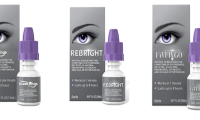-
FDA sets date for high-profile CAR-T adcomm for Bristol’s Abecma, J&J’s Carvykti
- Source: drugdu
- 98
- February 6, 2024
-
FDA Issues Warning of Contaminated Copycat Eyedrops
- Source: drugdu
- 125
- February 5, 2024
-
Edwards receives FDA approval for first transcatheter tricuspid valve replacement treatment
- Source: drugdu
- 94
- February 4, 2024
-
FDA rejects Defender Pharma’s motion sickness nasal gel candidate
- Source: drugdu
- 113
- February 1, 2024
-
FDA Grants Priority Review to AstraZeneca and Daiichi Sankyo’s Enhertu for HER2+ Solid Tumors
- Source: https://www.pharmexec.com/authors/pharmaceutical-executive-editorial-staff
- 139
- January 31, 2024
-
Citing Severe Health Risks, FDA Issues Warning Against Using Tianeptine Products
- Source: drugdu
- 97
- January 30, 2024
-
FDA Warns Drugmakers of Additional Cancer Risks Associated with CAR T-Cell Therapy
- Source: drugdu
- 103
- January 26, 2024
-
Gilead’s Tecartus gets revised safety demand amid FDA’s push for CAR-T boxed warnings
- Source: drugdu
- 90
- January 26, 2024
-
FDA Calls for New Safety Warning for the Class of CAR T Cancer Therapies
- Source: drugdu
- 95
- January 25, 2024
-
FDA Approves Balversa for Locally Advanced, Metastatic Urothelial Carcinoma
- Source: drugdu
- 265
- January 23, 2024
your submission has already been received.
OK
Subscribe
Please enter a valid Email address!
Submit
The most relevant industry news & insight will be sent to you every two weeks.













